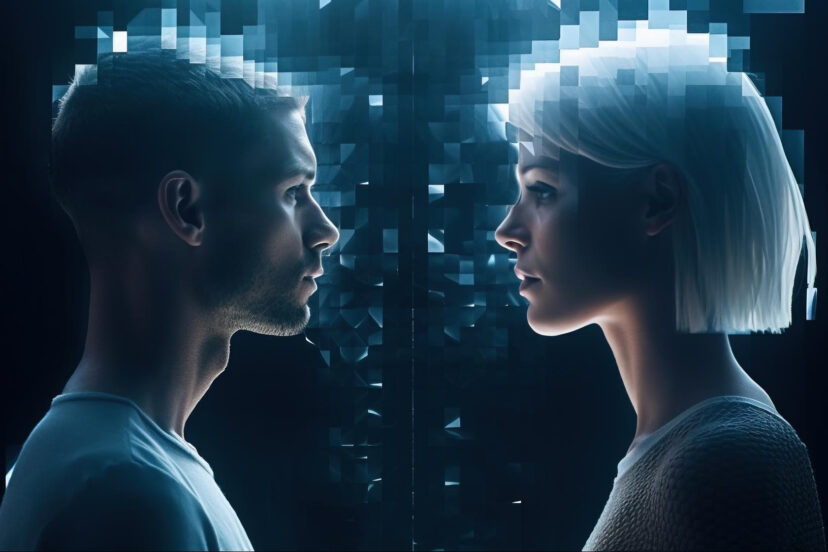AI-driven Matchmaking Risks
In an era where our smartphones have become extensions of ourselves, the way we find love has undergone a remarkable transformation. At the heart of this romantic revolution lies artificial intelligence – a digital Cupid armed not with arrows, but with algorithms and data points. While AI-driven matchmaking risks are becoming increasingly apparent, the technology continues to reshape the landscape of modern romance in ways both fascinating and concerning.
The Digital Cupid’s Algorithm: A New Path to Love
Imagine a matchmaker who never sleeps, possesses an encyclopedic memory of millions of potential partners, and learns from every interaction. This is the promise of AI-driven matchmaking, a technology that processes information at a scale that would make traditional matchmakers’ heads spin. Every time you swipe right, pause on a profile, or engage in conversation, these intelligent systems are quietly taking notes, building an ever-more-sophisticated understanding of your romantic preferences.
Modern dating platforms have evolved far beyond simple demographic matching. Today’s AI systems discover surprising patterns in successful relationships that might never occur to human observers. Did you know that your reading habits might predict relationship longevity? Or that your exercise routine could indicate compatibility with certain communication styles? These unexpected correlations emerge from the vast ocean of data that AI systems analyse, offering insights that challenge our traditional understanding of compatibility.
When Silicon Valley Plays Cupid: The Human Element
Despite all its computational prowess, AI-driven matchmaking hasn’t rendered human intuition obsolete. Instead, it serves as a sophisticated filter, helping us navigate through the overwhelming sea of potential partners to find those with whom we might genuinely connect. The technology acts more like a skilled assistant than a replacement for human judgment, narrowing down options while leaving the magic of human connection intact.
Think of it as having a highly efficient personal assistant who knows your taste in partners but can’t feel the spark of chemistry for you. The final decision – that moment when hearts skip beats and butterflies take flight – remains purely human. This partnership between artificial intelligence and human emotion represents a unique blend of logic and love, data and desire.
The Shadow Side of Digital Romance
However, as we delve deeper into AI-driven matchmaking risks, several concerning patterns emerge that deserve our attention. Perhaps the most troubling is algorithmic bias – a challenge that becomes particularly problematic when it influences matters of the heart.
These biases manifest in ways that can perpetuate societal prejudices. Some users report experiencing digital discrimination based on their race, age, or appearance, with certain groups receiving notably fewer matches or being less prominently featured within apps. What makes this particularly insidious is how these biases often stem from historical data used to train the algorithms, essentially digitizing and amplifying existing social inequities.
Privacy in the Digital Age of Romance
In our quest for love, we share our most intimate details with dating platforms – our preferences, desires, locations, and personal histories. This treasure trove of sensitive information presents one of the most significant AI-driven matchmaking risks: data vulnerability. Unlike traditional dating, where personal information might be shared with a small circle of friends or a professional matchmaker, digital platforms store these intimate details in vast databases.
The implications of a security breach in this context go far beyond typical cybercrime concerns. Exposed personal information could lead to stalking, harassment, or blackmail. Moreover, questions arise about how platform operators might use or share this wealth of personal data. Are our romantic preferences being used to target advertisements? Could our relationship histories influence other aspects of our digital lives?
The Psychology of Algorithmic Love
The integration of AI into our love lives has sparked subtle but profound psychological changes in how we approach relationships. The seemingly endless choice offered by these platforms can trigger what psychologists call “choice paralysis” or the “paradox of choice.” When faced with countless potential partners, users might find themselves trapped in a constant search for the theoretical perfect match, becoming less likely to invest in developing real connections.
The gamification of dating – complete with swipes, matches, and dopamine-inducing notifications – might be fundamentally altering our approach to finding partners. The quick-swipe culture promoted by many apps can lead to a more superficial evaluation of potential matches, potentially undermining the development of deeper, more meaningful connections.
The Business of Digital Love
One of the most significant AI-driven matchmaking risks lies in the commercialization of human connection. Dating platforms, driven by profit motives, face an inherent conflict of interest. Their business models rely on maintaining a large, active user base, which might conflict with the goal of helping users find lasting relationships. After all, successful matches might lead to users leaving the platform, potentially affecting revenue.
This raises important questions about the true optimization goals of these platforms. Are they designed to facilitate genuine, lasting connections, or are they engineered to maximize user engagement and subscription renewals? The answer likely lies somewhere in between, but users should remain aware of this fundamental tension.
Navigating the Future of Digital Romance
As we look toward the future of AI-driven matchmaking, it’s crucial to approach these platforms with both optimism and informed caution. The technology continues to evolve, offering increasingly sophisticated matching capabilities while simultaneously presenting new challenges and risks.
Developing Digital Dating Literacy
To make the most of AI-driven matchmaking while minimizing risks, users should develop a form of “digital dating literacy.” This includes:
Understanding how these platforms work and what data they collect
Being aware of and actively managing privacy settings
Maintaining realistic expectations about the role of technology in finding love
Recognizing the balance between algorithmic suggestions and human intuition
The Evolution of Digital Romance
The future of AI-driven matchmaking likely lies in finding the sweet spot between technological efficiency and human connection. Success will come to platforms that can effectively combine the analytical power of AI with respect for human agency and emotional intelligence. This might include:
More transparent algorithms that users can understand and customize
Better protection for user privacy and data
Reduced bias through more sophisticated and fair matching systems
Integration of real-world elements that support genuine connection
Embracing a Balanced Approach
While AI-driven matchmaking represents a revolutionary approach to finding love, it’s essential to remain mindful of both its potential and its pitfalls. The technology works best when viewed as a tool to enhance rather than replace human connection. As these platforms continue to evolve, their success will depend on their ability to address concerns about privacy, bias, and the fundamental human aspects of relationship formation.
The key to navigating AI-driven matchmaking risks lies not in choosing between technology and tradition, but in finding ways to leverage digital tools while preserving the uniquely human elements of love and connection. As we continue this grand experiment in digital romance, our challenge is to harness the power of AI while remembering that true love, in all its mysterious glory, remains fundamentally human.
In this brave new world of algorithmic romance, success lies in understanding both the possibilities and limitations of our digital matchmakers. By approaching these platforms with awareness, wisdom, and a healthy dose of human intuition, we can better navigate the complex landscape of modern love, using technology as a bridge rather than a barrier to meaningful connection.




